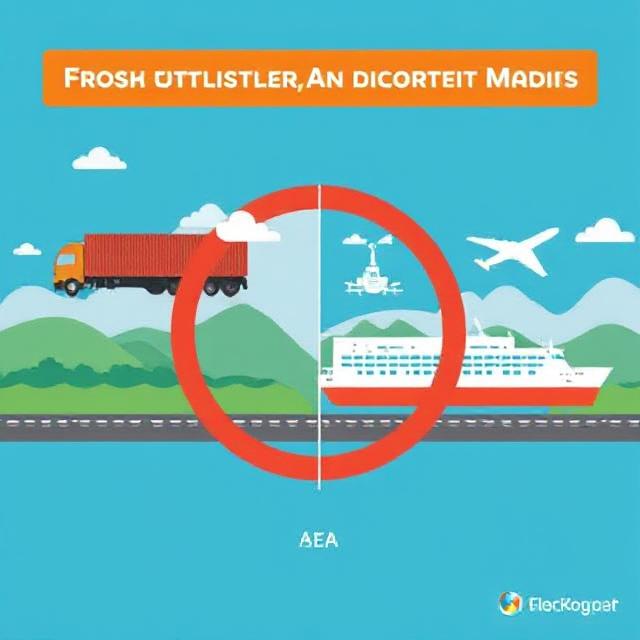Discover when to use road, rail, air, or sea freight. This guide explains each transport mode’s strengths, costs, and ideal use cases to help you make smarter shipping choices.
When to Use Each Freight Transport Mode: Road, Rail, Air & Sea Explained
Choosing the right freight transport mode can make or break your logistics strategy. From speed and cost to cargo type and destination, knowing when to use road, rail, air, or sea freight is key to optimizing your supply chain.
This guide breaks down each transportation method to help you decide which is best for your shipping needs.
🚛 Road Freight: Flexible & Widely Accessible
When to use:
- Short to medium distances
- Door-to-door delivery
- Time-sensitive local shipments
Ideal for:
- Perishable goods
- Consumer products
- Regional e-commerce deliveries
Why choose road:
Road freight is perfect for flexible routes and last-mile delivery. It supports small to medium loads and is the go-to option for areas without rail or port access.
🚆 Rail Freight: Cost-Effective for Heavy Loads
When to use:
- Long-distance domestic shipping
- Bulk commodities or industrial cargo
- Shipments that are less time-sensitive
Ideal for:
- Coal, steel, timber
- Construction materials
- Automotive parts
Why choose rail:
Rail is best when you need to move heavy or large volumes over land at a lower cost. It’s more eco-friendly than road and less impacted by weather and traffic.
✈️ Air Freight: Fastest for Urgent Shipments
When to use:
- Time-critical or emergency deliveries
- Small, high-value, or lightweight cargo
- International shipments with tight deadlines
Ideal for:
- Electronics
- Medical equipment
- High-value goods (e.g., jewelry)
Why choose air:
Air freight ensures rapid, secure global transport. Though expensive, it’s ideal when speed outweighs cost considerations.
🚢 Sea Freight: Economical for Global Trade
When to use:
- Large, heavy, or non-urgent shipments
- Intercontinental shipping
- Goods that don’t require fast delivery
Ideal for:
- Raw materials
- Furniture and machinery
- Oversized or hazardous cargo
Why choose sea:
Sea freight offers the best rates for bulk international transport. While slower, it’s the backbone of global trade due to its capacity and affordability.
🔄 Multimodal or Intermodal: Combine for Best Results
For complex routes, consider multimodal shipping, which blends transport types (e.g., sea + rail + road) to improve efficiency, cut costs, and reach global destinations.
✅ Quick Summary Table
| Mode | Speed | Cost | Capacity | Best For |
|---|---|---|---|---|
| Road | Medium | $$ | Small–Medium | Local delivery, short distances |
| Rail | Medium | $ | High | Domestic bulk shipping |
| Air | Fastest | $$$$ | Low | Urgent international shipments |
| Sea | Slow | $ | Very High | Global trade and large cargo |
🧭 Final Thoughts: Make the Right Choice
There’s no one-size-fits-all in freight transport. Each mode serves different needs, and the right choice depends on your cargo, timeline, budget, and destination. With the right combination, you can create a seamless, cost-effective, and dependable logistics network.
Target Keywords:
- freight transport modes
- when to use road freight
- air vs sea freight
- types of cargo transport
- rail vs road shipping
- cargo transport methods
- freight logistics guide
- transport mode comparison
- best shipping method

